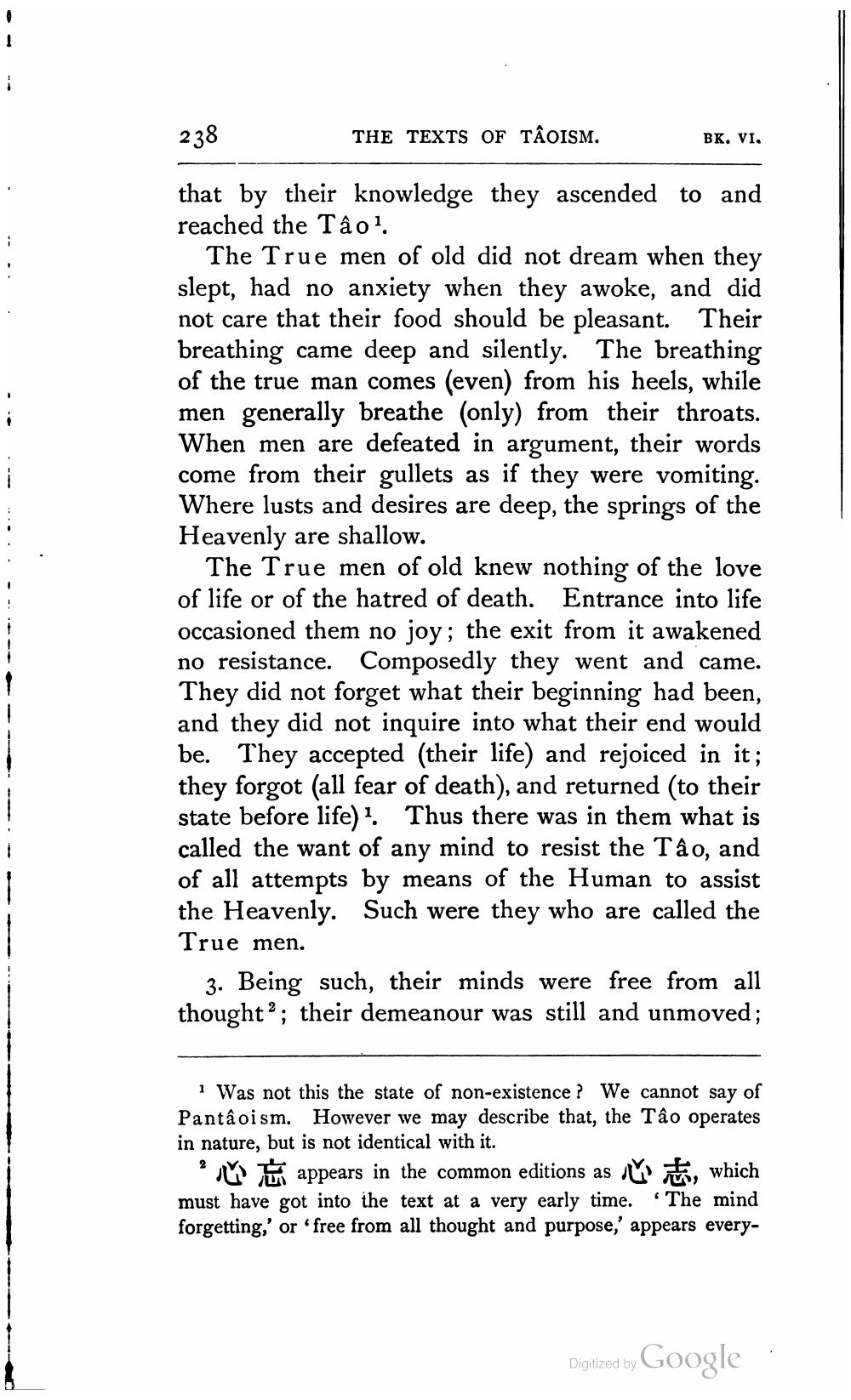________________
238
THE TEXTS OF TÂOISM.
BK. VI.
that by their knowledge they ascended to and reached the Tâol.
The True men of old did not dream when they slept, had no anxiety when they awoke, and did not care that their food should be pleasant. Their breathing came deep and silently. The breathing of the true man comes (even) from his heels, while men generally breathe (only) from their throats. When men are defeated in argument, their words come from their gullets as if they were vomiting. Where lusts and desires are deep, the springs of the Heavenly are shallow.
The True men of old knew nothing of the love of life or of the hatred of death. Entrance into life occasioned them no joy; the exit from it awakened no resistance. Composedly they went and came. They did not forget what their beginning had been, and they did not inquire into what their end would be. They accepted (their life) and rejoiced in it; they forgot (all fear of death), and returned to their state before life) ?. Thus there was in them what is called the want of any mind to resist the Tâo, and of all attempts by means of the Human to assist the Heavenly. Such were they who are called the True men.
3. Being such, their minds were free from all thought?; their demeanour was still and unmoved;
1 Was not this the state of non-existence? We cannot say of Pantaoism. However we may describe that, the Tâo operates in nature, but is not identical with it.
I appears in the common editions as / , which must have got into the text at a very early time. The mind forgetting,' or 'free from all thought and purpose,' appears every
Digitized by Google
.




